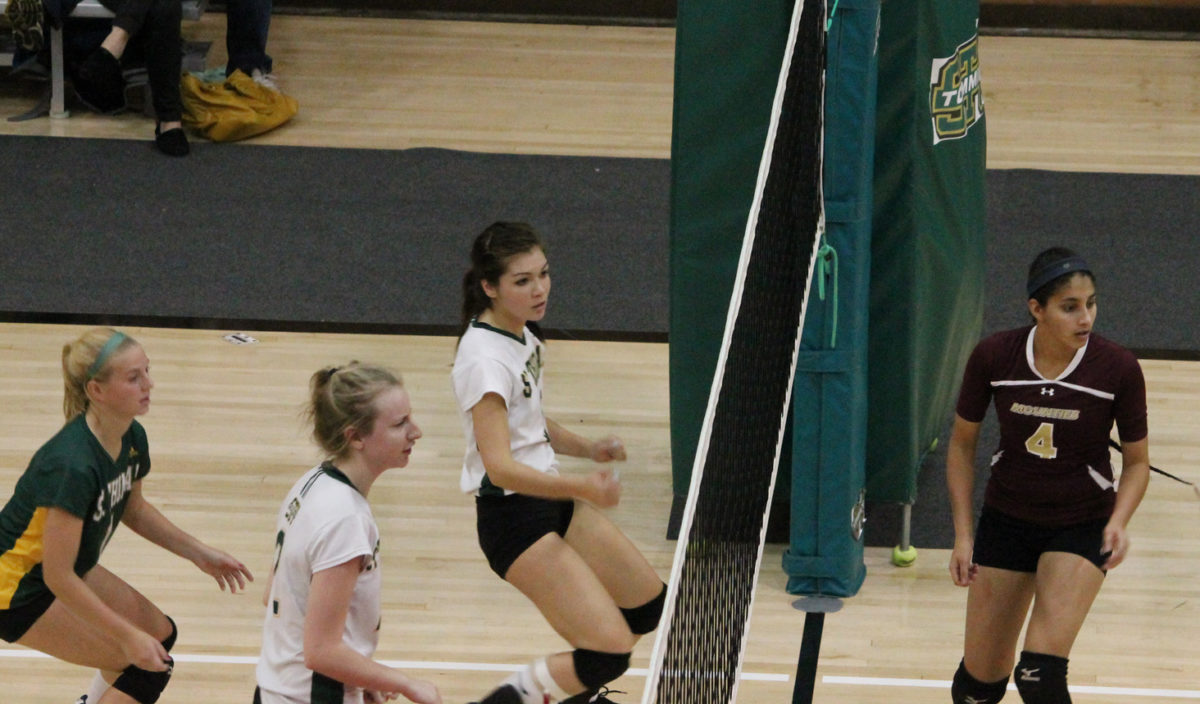


Some athletes, by nature, are vocal. All you have to do is look at the Seattle Seahawks’ Richard Sherman’s reaction after they won the NFC Championship to go to the Superbowl. Sometimes it’s positive, supporting teammates and getting excited. Sometimes it’s negative, aimed at the other team.
For St. Thomas volleyball player Sean McCullum, being vocal is a major part of what he brings to the team. He has been told that he can be pretty loud on the court. Just recently he received a yellow card in a game for being too vocal.
“I’m really quite the chirper. I like to get in the other team’s head,” said McCullum.
He tries to balance out the negative with the positive, but often he finds the negative comes out more. He thinks playing a mental game can really give his team an advantage.
“Volleyball is such an emotional sport. When you’re down it’s harder to get back up,” he said.
Chirping can have a heavy impact on a player, meaning it can impact the game as well. Sports are a combination of skill and concentration and when a player’s focus slips, it can give the opposing team a big advantage.
“Say some kid goes up to hit and nails it into the block, obviously you congratulate your boys, and also you can congratulate him on getting blocked.”
Having trouble getting back on track after some poor play works both ways. McCullum finds himself often picking his teammates up and encouraging them.
“If your teammates get down, you got to get them hyped back up, or they’re going to play poorly,” he said.
Nicole Munro, who plays for the women’s volleyball team, also considers herself to be vocal player. She finds herself trying to help when her teammates are down, but also calling them out when needed.
“Sometimes you can be vocal like enthusiastic, and try to amp them up to play well,” said Munro. “And sometimes, if you’re losing or you’re frustrated, it can be a little more aggressive. You know the potential that they have and how well they can play but they’re not performing to their best, sometimes you need to give them a little push to play better.”
She finds it depends on the situation. If the team is down only a few points she tries to stick to encouraging her teammates, but if they are down by a lot she can be more straightforward.
“We’ve been down games by 10 or so points and I just kind of snapped a little bit, gave them a reality check. That works them up and you realize that yeah, you do need to play better,” she said.
While chirping can be effective, it doesn’t work on everybody. Munro said that when other team’s players and fans try to heckle her it just makes her want to play better.
“I’m the person that if someone is being negative towards me it just gives me motivation to beat them and shove it back in their face,” said Munro.
“There’s been occasions where certain players have said things to me through the net but luckily there was a net there so anything doesn’t get physical.”
